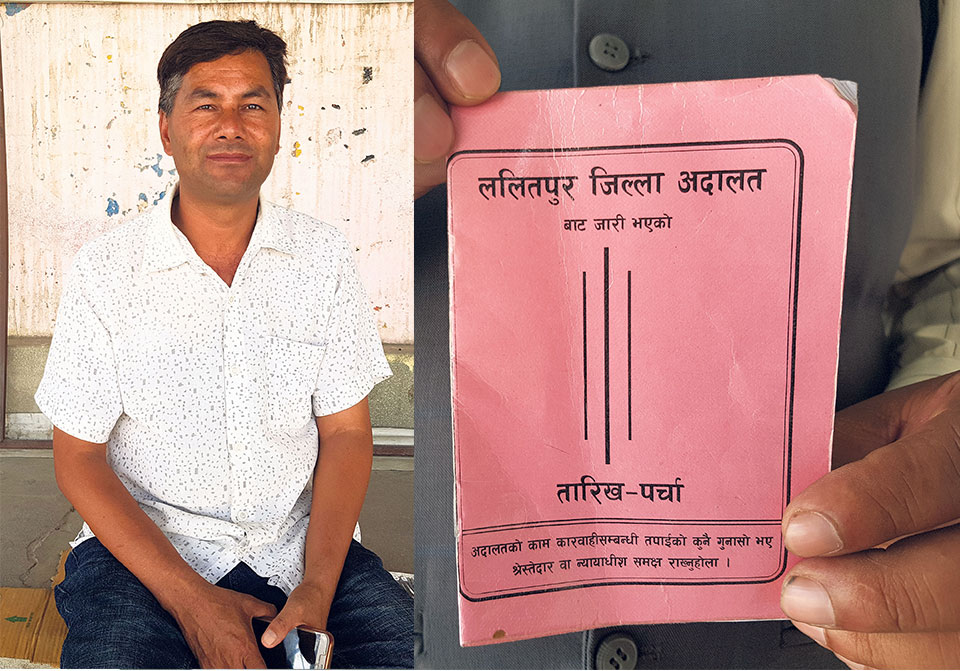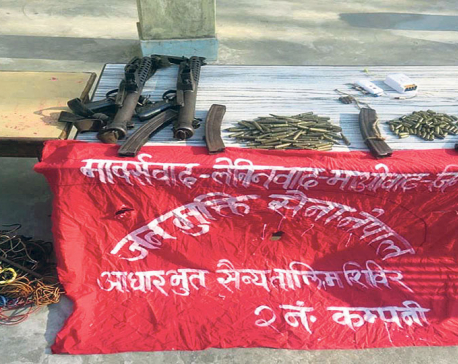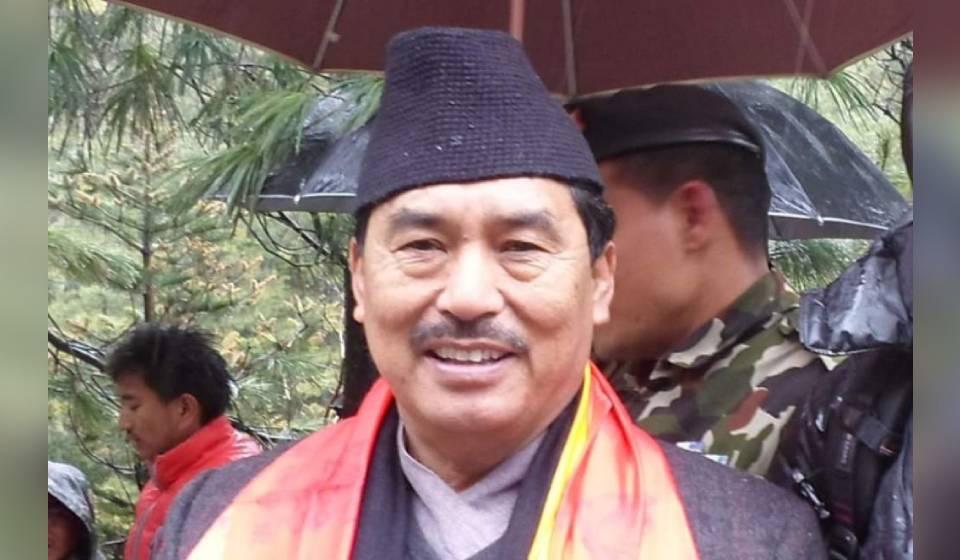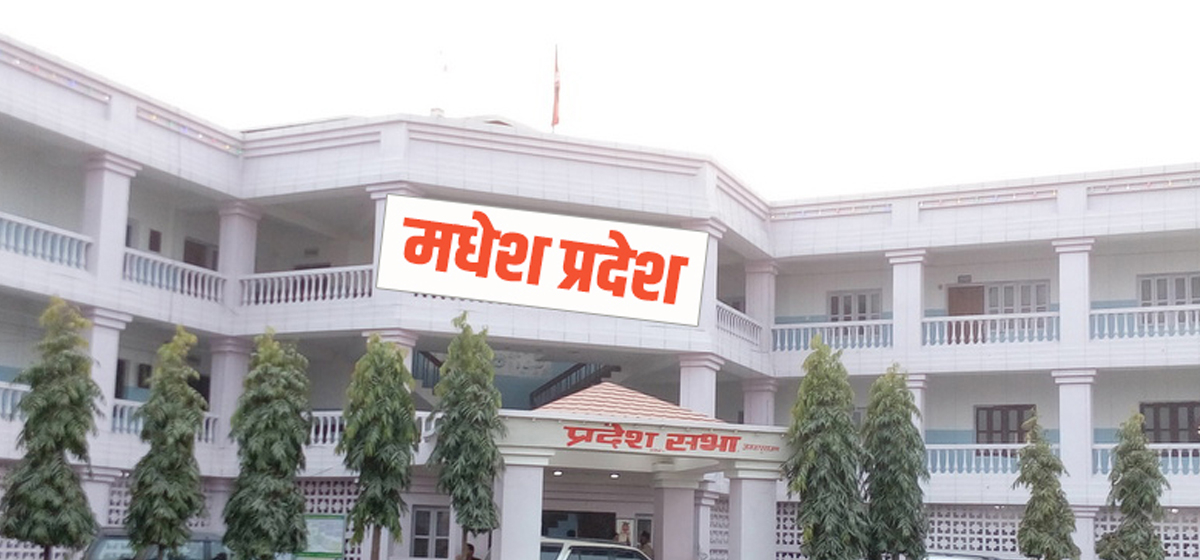
OR
Minister Baskota says he cares about freedom of press. Really?
Published On: January 31, 2019 08:15 AM NPT By: Roshan Sedhai

Muzzling of press unabated
KATHMANDU, Jan 31: Minister for Communication and Information Technology Gokul Prasad Baskota likes to give out the impression of a political leader who truly cares about journalism. Baskota, himself a journalist who turned politician, keeps harping on the need to improve the working condition of working journalists.
In fact, the ministry that Baskota heads recently hiked the basic salary of working journalists by 25 percent.
Baskota enjoys lampooning the corporate media for their woeful treatment of reporters. Sounds like a true champion of working journalists? But wait. Beneath this carefully cultivated image is a man who can hardly stand the truth when it is harsh. There is little that Baskota hasn’t done to undermine the free press.
He has ordered editors at state-owned media to avoid coverage that is critical of the government, especially coverage related to Nirmala Panta and Dr Govinda KC. He has issued veiled threats to publishers for portraying the government in a poor light.
He has denied journalists requests for information about decisions taken by the Council of Ministers. He has stood in defense of the unlawful use of the Electronic Transaction Act, which has landed several journalists behind bars in the last few months. He has threatened to deprive private media of government advertising, which remains a major source of revenue for them.
What is particularly disturbing is that the aforementioned incidents, which have been compiled from media reports and interviews with reporters, editors and the owner of a national broadsheet daily, occurred in just the past few months.
Even prior to this, Raju Thapa, a television journalist, was forced to end his long-running weekly interview show on Nepal Television for grilling Baskota about gold he had taken as dowry from his in-laws.
In a recent interview with Frontline, a weekly live talk-show aired by Nagarik Network, Baskota denied most of the allegations against him, including directing editors at state-owned media to shun negative coverage of the government. He also refuted accusations of muzzling the press.
Bringing out the truth has never been easy for journalists in Nepal, a country where professional integrity often gets conflated with loyalty. Be it during the Panchayat era or under the king’s direct rule, there have been instances when journalists had to lose their jobs just for doing their work, while some others have been threatened or even killed.
However, journalists have never felt so threatened since the country became a federal republic in 2008.
“From their words and actions, it’s quite apparent that the ministers and office bearers of this government are increasingly hostile toward media. Having said that, the government hasn’t actually made any changes in the law so far to target freedom of the press,” said Dharmendra Jha, former president of the Federation of Nepali Journalists (FNJ).
Since the new government came to power, several journalists have become targets of state-sponsored crackdown just for engaging in their calling.
“Journalism was never an easy thing to do, but the situation wasn’t this bad earlier,” said Raju Basnet, the editor and publisher of Khojtalas, a weekly newspaper based in Kathmandu. Basnet was twice put behind bars, once without any arrest warrant, for reporting about pressure allegedly exerted by Nepal Communist Party leaders to illegally sell off land belonging to Harisiddhi Brick Factory. Basnet was held in custody for five days and released on bail only after a media outcry.
“I still have to go to the police station from time to time. This is how they are intimidating journalists,” Basnet said.
Like Basnet, digital media journalist Ramesh Sharma (name changed), who is also based in the capital, has had to show up regularly at a police station in Lalitpur since being arrested for publishing a report critical of Home Minister Ram Bahadur Thapa. He was charged with violating the Electronic Transactions Act and with defamation.
The police didn’t even bother to inform the Press Council, the autonomous body that oversees media conduct, before making the arrest. “It’s been an absolute nightmare since I got arrested. I haven’t been able to work freely,” said Sharma, who requested anonymity. “This government wants us to just stand by and watch in silence at its misdeeds.”
Police cited violation of the Electronic Transaction Act to prosecute both the journalists. The Act has been used with alarming frequency against journalists, especially digital journalists critical of the government.
“This is gross misuse of a law that was never meant to be used against journalists. In the last six months or so, an increasing number of journalists have been arrested under the Electronic Transaction Act. This should be stopped,” said Jha.
The tirades of Baskota and his colleagues and their plain threats to the media make little sense unless these are put in a larger context. The leftist government, which swept to power with a near two-third majority, has fallen awfully short in delivering on its promise of peace, prosperity and equality. The poor are getting poorer, the rich richer.
The law and order situation continues to deteriorate. Corruption has become endemic. Big contractors, corrupt officials, the transportation mafia and big businesses indicted for tax evasion are beyond the reach of the government. Some cabinet ministers face serious embezzlement charges.
The government has struggled to spend recurrent budgets even as basic services like decent roads, transportation and drinking water remain a far cry even in the cities, let alone the villages. Despite promises of jobs, more than 1,000 Nepali youths continue to leave the country every day in search of work elsewhere.
The big-majority government has proved a big disappointment in addressing basic public concerns, not to speak of laying the foundations for large development promises such as waterways and railways.
But Prime Minister Oli and his aides want the nation to believe things have never been better. Oftentimes the ruling party has twisted facts and figures and even propagated blatant lies to build a false narrative. The opposition, still reeling under its stinging defeat during nationwide elections, has failed to robustly counter the falsehoods.
Despite all its own failings, the media has been speaking truth to power, often holding those in government accountable and reminding them of the failure to deliver on manifold promises. Media has been constantly raising questions over the sincerity of the government toward rule of law and transparency. This had led the Oli government to lash out at the media. Jha, the ex-FNJ president, said the government was setting a bad precedent in muzzling press freedom.
“What they are forgetting is that the media’s role in Nepal has always been that of a permanent opposition. It’s what the media is expected to do – to report wrongdoings by government. The same leaders who have been lambasting media were praising it for doing its job when it was pointing out wrongdoings by the Nepali Congress government. The government should let media do its job.”
You May Like This

Amazon confirms two employees in Italy have contracted coronavirus
WASHINGTON, March 2: Amazon.com Inc said late on Sunday that two employees in Milan, Italy, have contracted the coronavirus and... Read More...

Solidarity rally for press freedom
KATHMANDU, May 1: The Federation of Nepali Journalists, an umbrella organisation of working journalists in the country, hosted a solidarity... Read More...

Govt restricts Chand group’s activities
KATHMANDU, March 13: The government on Tuesday outlawed the ‘political activities’ of the semi-underground Communist Party of Nepal led by... Read More...





Just In
- Russia warns NATO nuclear facilities in Poland could become military target
- 16th Five Year Plan: Govt unveils 40 goals for prosperity (with full list)
- SC hearing on fake Bhutanese refugees case involving ex-deputy PM Rayamajhi today
- Clash erupts between police and agitating locals in Dhanusha, nine tear gas shells fired
- Abducted Mishra rescued after eight hours, six arrested
- Forest fire destroys 13 houses in Khotang
- First meeting of Nepal-China aid projects concludes
- Lungeli appointed as Minister for Labor and Transport in Madhesh province govt













Leave A Comment